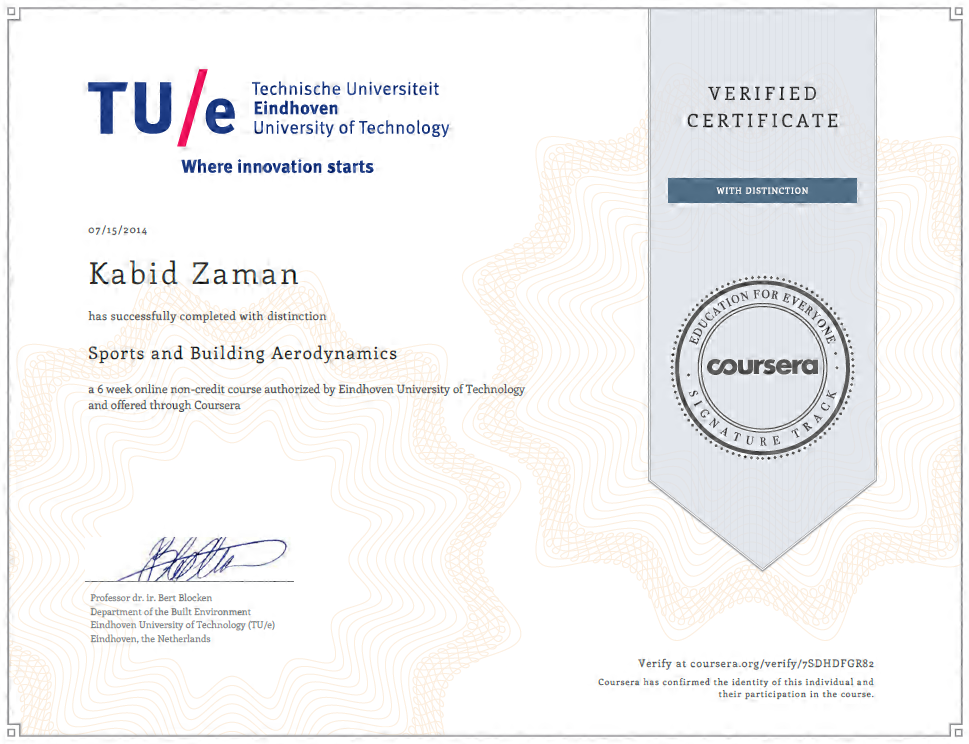Sports and Building Aerodynamics
Course Platform :
Course Duration :
Session :
Course Institute :
Department :
Course Instructor:
Coursera
6 Weeks
27 April 2014 – 7 June 2014
Eindhoven University of Technology
Building Physics
Prof. Bert Blocken
Course Introduction
What I have learned
Module 1: Basic aspects of fluid flow
- Fluid properties – part 1 (Velocity, Pressure, Temperature)
- Fluid properties – part 2 (Density)
- Fluid properties – part 3 (Viscosity)
- Flow properties – part 1
- Flow properties – part 2
- Fluid Statics, Kinematics, Dynamics
- Boundary layers – part 1
- Boundary layers – part 2
- Boundary layers – part 3
- The atmospheric boundary layer
Module 2: Wind-tunnel testing
- Why wind-tunnel testing?
- Wind-tunnel types and applications
- The atmospheric boundary layer wind tunnel
- Wind-tunnel components
- Measurements and flow visualization
- Similarity and flow quality
- Best practice guidelines
Module 3: Computational Fluid Dynamics
- Computational Fluid Dynamics: what, why and how?
- Approximate forms of the Navier-Stokes equations
- Turbulence modeling
- Some aspects of discretization
- Near-wall modeling
- Errors and uncertainty, verification and validation
- Best practice guidelines
- Computational Wind Engineering – Part 1
- Computational Wind Engineering – Part 2
Module 4: Building aerodynamics
- Wind flow around buildings – part 1
- Wind flow around buildings – part 2
- Pedestrian-level wind conditions around buildings – part 1
- Pedestrian-level wind conditions around buildings – part 2
- Pedestrian-level wind conditions around buildings – part 3
- Natural ventilation of buildings
- Wind-driven rain on building facades – part 1
- Wind-driven rain on building facades – part 2
- Wind energy in the built environment – part 1
- Wind energy in the built environment – part 2
Module 5: 100 m sprint aerodynamics
- Why study sprint aerodynamics?
- Mathematical-physical model of running
- Wind effects
- Altitude effects
- Stadium aerodynamics and sprint records
Module 6: Cycling aerodynamics
- Why study cycling aerodynamics?
- Wind-tunnel testing for a single cyclist – Part 1
- Wind-tunnel testing for a single cyclist – Part 2
- CFD simulations for a single cyclist
- Aerodynamics of two drafting cyclists
- Aerodynamics of drafting cyclist groups
- Aerodynamics of car-cyclist combinations
